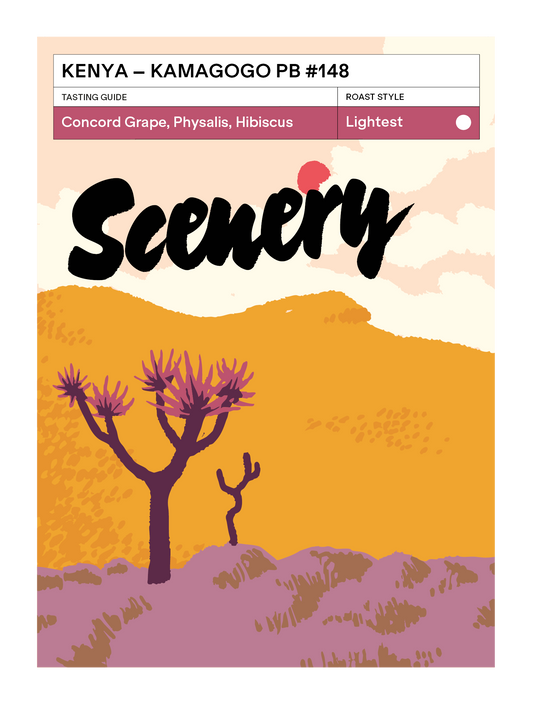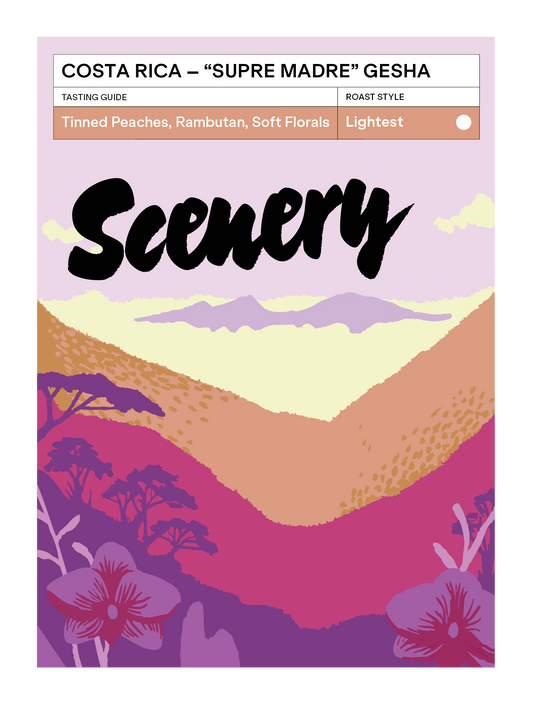This super sweet & buttery grade 1 washed Ethiopian was profiled with espresso in mind, and ran from 24/07 to 16/10/24.
Our third Ethiopian release of the season (it's that time of year) is a delightful washed lot from the venerable SNAP Chelbesa station in the Worka Chelbesa kebele of Gedeb. Replacing the El Jaragual Espresso, we've picked and profiled this lot with espresso in mind, although it'll be great on immersion brews too.
We really enjoyed the peachy stonefruit, buttery caramels and sweet tea notes we found in this coffee - a great example of the Gedeb profile, and perfect for a slightly heavier hand with the roaster influence to make a bright yet balanced espresso.
Brew Guide:
Best Brewed with: Espresso, Moka Pot, Immersion.
Fruit driven, syrupy and sweet, we've traded some acidity for body and balance with a slightly heavier roaster influence yet still on the lighter side. If you prefer a more classic, chocolate/caramel profile in your espresso, we'd recommend Familia Primavera or Facility Blend.
Best rested for: 2-3 weeks
For Filter: We recommend a ratio of 65g/L, 92°C water and a coarser ground to brew a syrupy juice bomb.
For Espresso: 18g in, 45g out, 30-35s for a classic espresso that will still cut through milk or work on its own, however this coffee will still work with turbo-style shots.
We’re tasting:
Sweet and bright aromatics of Meyer lemon, ripe peach, caramel and black tea. The shot is juicy with peach iced tea, lemon drizzle cake and a buttery body. As it cools the cake-like sweetness becomes dominant, with an interesting warming spice note akin to stem ginger.
In milk: Lemon meringue pie & caramel
Traceability:
Country of Origin: |
|
Region: |
|
Farm: |
Chelbesa washing station |
Producer: |
Negusse Debela, 763 smallholders selling cherry to SNAP Coffee
|
Variety: |
Primarily Wolisho & Dega (local landraces), alongside JARC cultivars |
Elevation: |
|
Process: |
Washed Ripe cherries picked and delivered to Chelbesa. Cherries floated to remove underripes and debris before pulping. Parchment wet fermented for 72 hours in ceramic tanks before washing through grading channels. The coffee is finished with a final 2 hour soak before moving to the beds for 10 days of controlled drying. |
Import Partner: |
Ally Coffee via SNAP |
Harvest |
|
The Story
What can we say - we felt like drinking a washed Ethiopian espresso, so we made it happen. There’s something to be said about the particular character and balance of bright acidity and deep sweetness and complexity that makes them utterly compelling for us.
This year is a particularly good year for quality coming out of Ethiopia, so we’ve felt spoiled for choice. There are many, many famous wet mills and co-operatives that have rightly earned their place in the global lexicon of coffee, hallmarks for quality and of their particular taste of provenance.
It’s worth - always - clarifying that in Ethiopia wet mills may often be named after the local region, as opposed to being given unique names. And as lots are named after the station from whence they came, we as consumers might see “Chelelektu” or “Konga” - and assume the source to be monolithic. The result on the ground tells a different story - perhaps there are 5, 20 or 50 wet mills in a given local region, such is the abundance of small farmers looking for the best birr price for their cherry.
As such, it’s worth considering not just the name of the station but which exporter or co-operative owns and manages it - even then, there may still be multiple sites for a given kebele, but we can assume a standard application of technique and philosophy behind the management. While the trees each smallholder grows might experience similar local microclimates, leading to a similar raw base profile, the processing and drying at each station lends a unique element of intervention that produces the final results.
It is this crucial stage that elevates the best above the rest, and SNAP’s Chelbesa is one such station. For all the large exporters and established mills, Chelbesa (located in the village of Worka Chelbesa, in the Gedeb sub-region of Gedeo in the SNNPR zone) has processing down to a fine art.
While the naturals that come out of Chelbesa and the neighbouring Danche station have their own well deserved reputation, it is the washed lots that we had our particular eye on. Consistent profile and stable green have made this a staple coffee for many roasters, and in purchasing such a classic coffee we get our chance - via our roast influence - to create our own expression of the Worka Chelbesa profile.
SNAP was founded in 2008 by Negussie Debela, and has been a pillar of high-quality speciality Ethiopian coffee exports. Most exporters in Ethiopia are able to work not only in exports but also in imports - using the foreign currency from international purchases to purchase goods for import, which can provide some perverse incentives when it comes to cherry purchasing as well as practices.
Crucially, it doesn’t require the export of speciality coffees, and it doesn’t require quality - a dollar is a dollar whether the coffee is 88pts or commercial. To produce, consistently, year on year high quality Speciality coffee takes an immense amount of effort - and one which we appreciate Negussie’s team all the more for. We’ve got a hit-list of exporter/co-operative/famous mill’s we’d love to explore over the years that we hope to be roasting coffee, but we’re stoked to kick things off with a bang with this delight.

![[30] Ethiopia - Worka Chelbesa G1 [CROP 23/24 ARCHIVE]](http://scenery.coffee/cdn/shop/articles/ethiopia_worka_chelbesa.png?v=1730102365&width=1100)
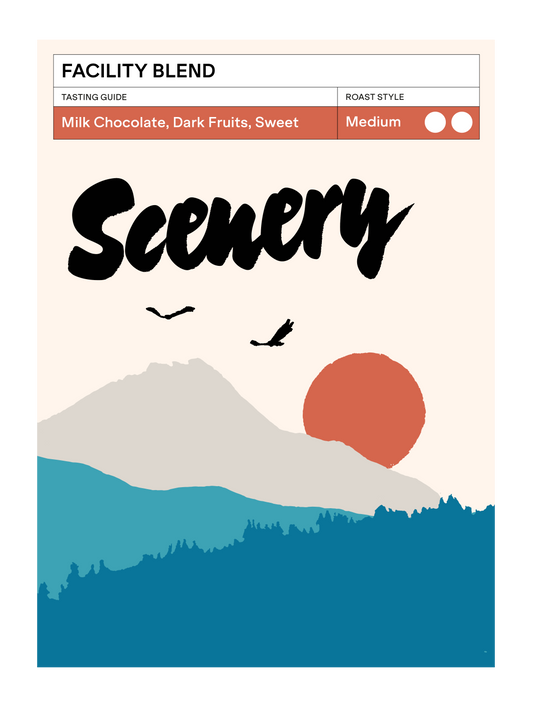

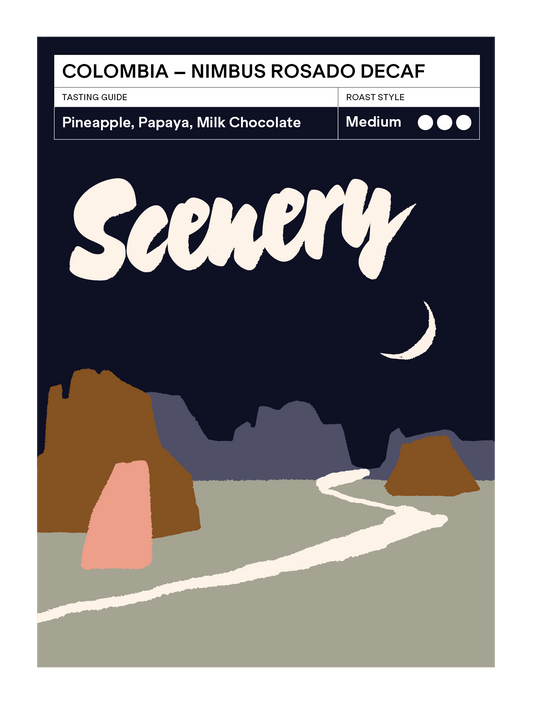
![Colombia - El Jaragual Espresso [25/26]](http://scenery.coffee/cdn/shop/files/colombia_el_jaragual_espresso_2526_shopify_02e82472-3443-4e5f-8e61-54b14caec36f.png?v=1756457993&width=533)
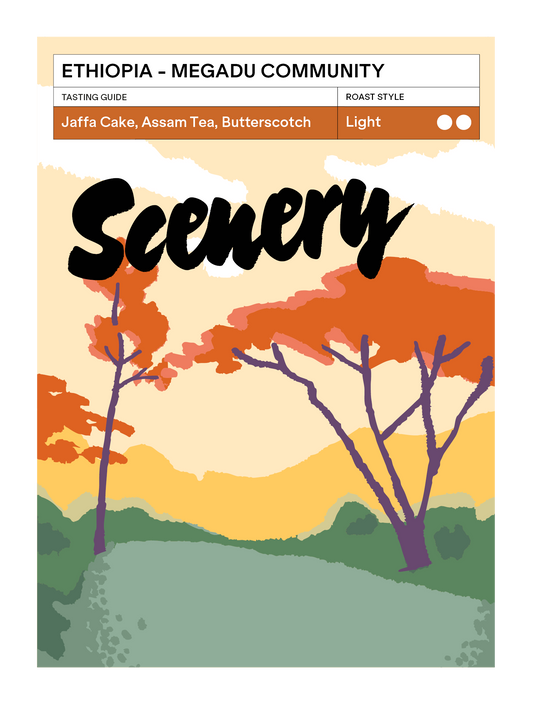
![Colombia - Quebraditas Gesha Thermal Shock Washed [25/26]](http://scenery.coffee/cdn/shop/files/colombia_quebraditas_gesha_2526_shopify.png?v=1761650288&width=533)
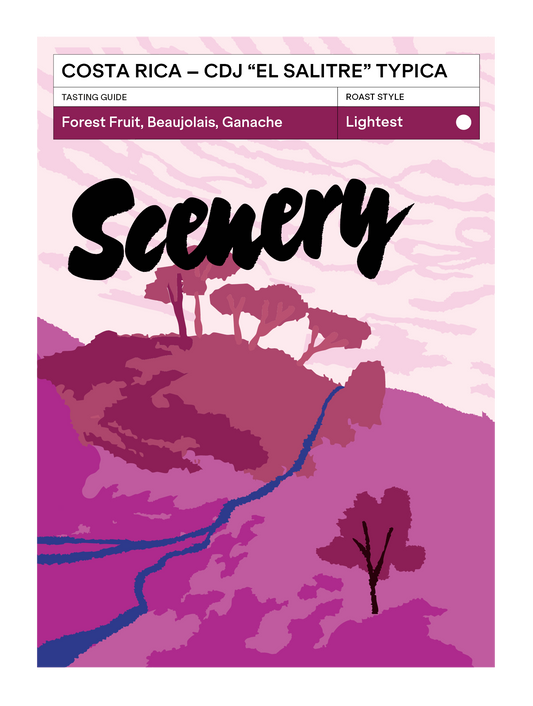
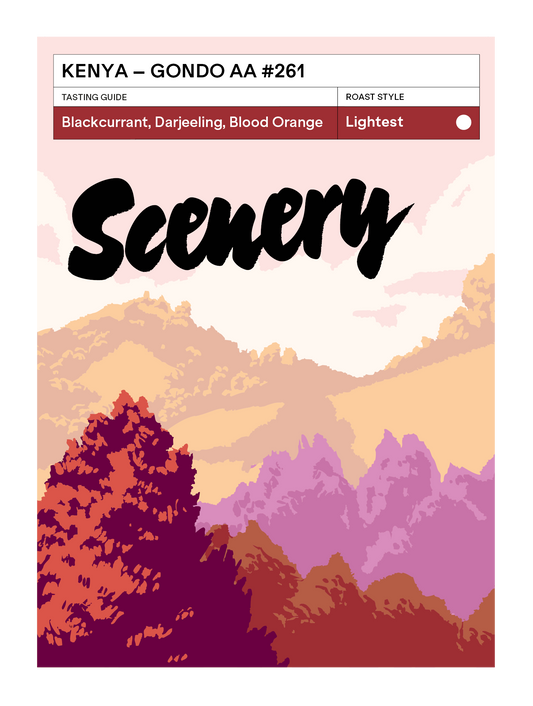
![Guatemala - Paya by Nery Pablo [24/25]](http://scenery.coffee/cdn/shop/files/guatemala_paya_24_25_shopify.png?v=1761047285&width=533)
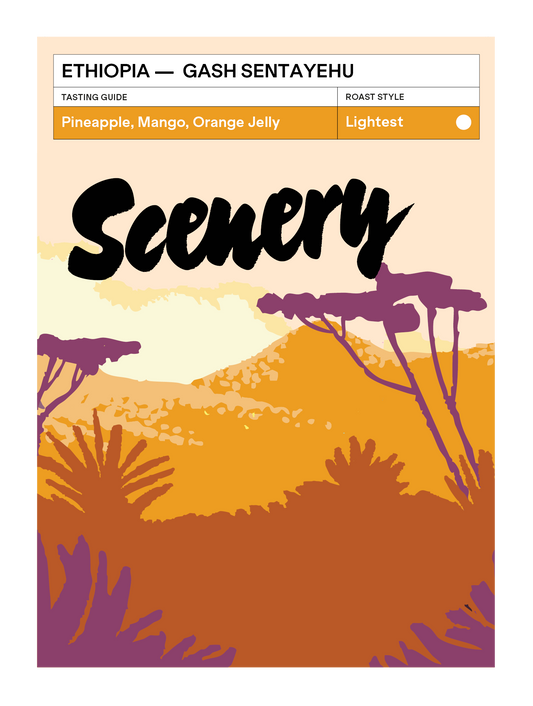
![Ethiopia - Rumudamo Natural [24/25]](http://scenery.coffee/cdn/shop/files/ethiopia_rumudamo_natural_shopify.png?v=1759952599&width=533)
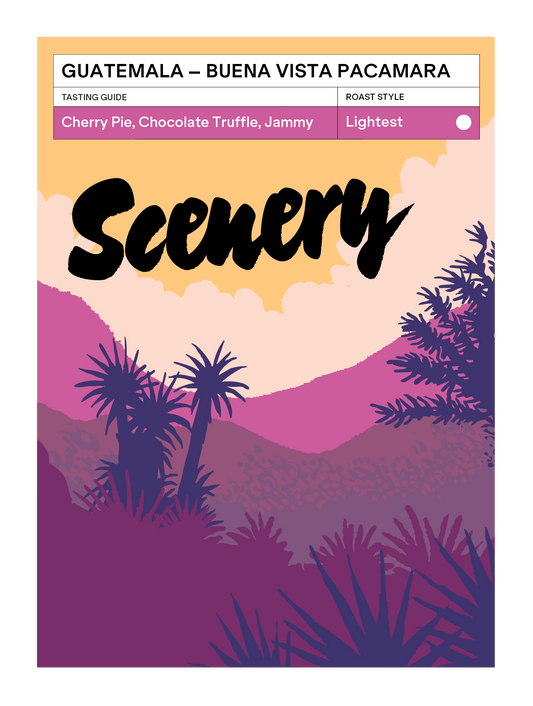
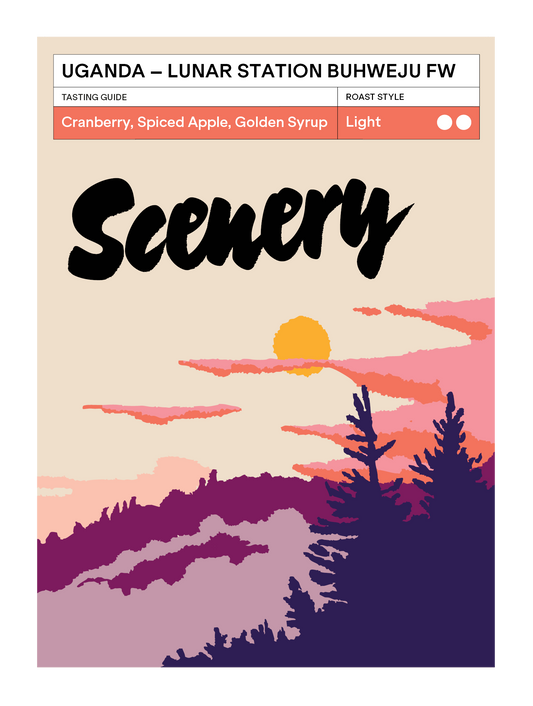
![Colombia - El Jaragual Rosado [25/26]](http://scenery.coffee/cdn/shop/files/el_jaragual_rosado_2526.png?v=1757075842&width=533)
